Presentations
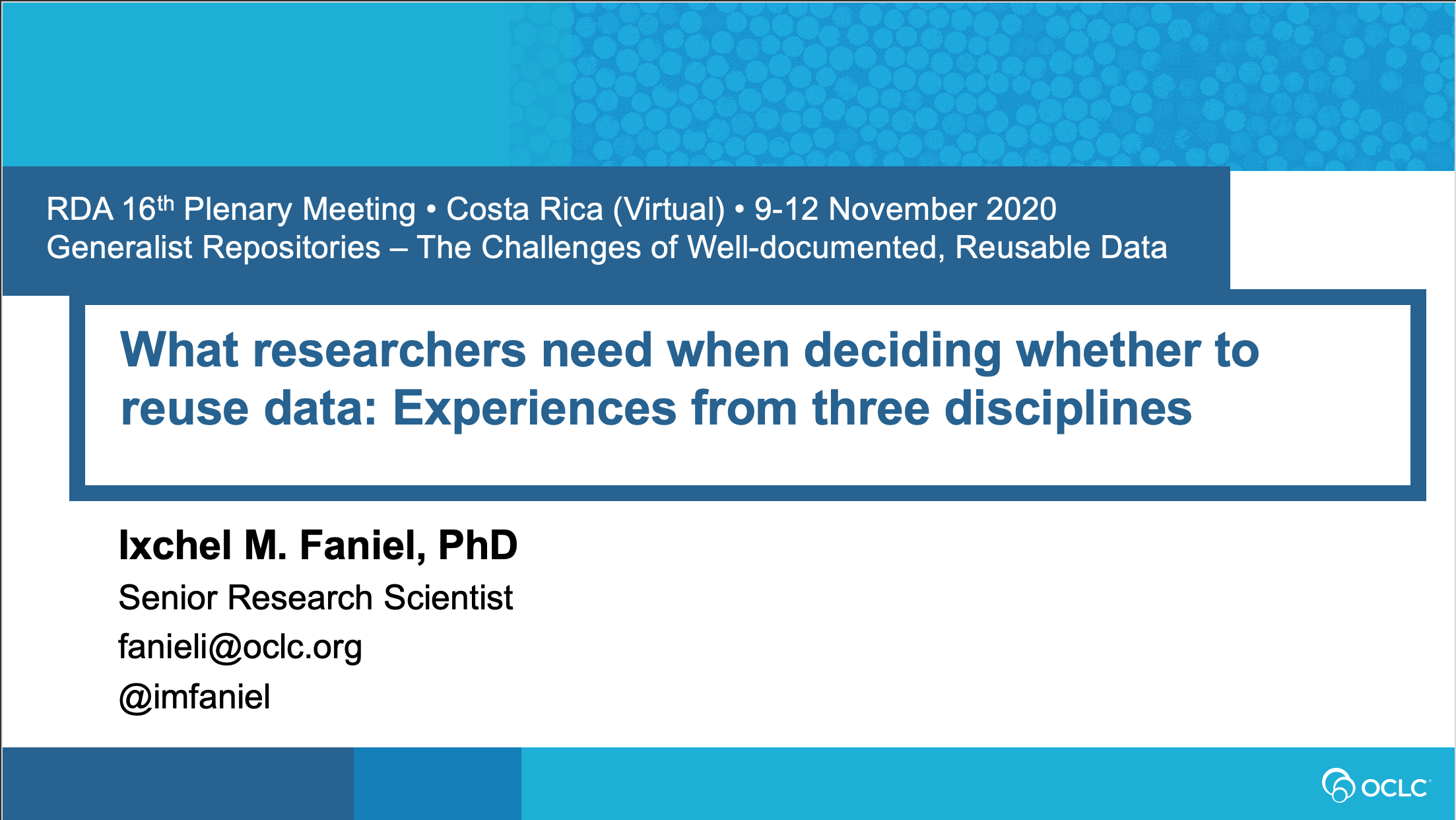
What researchers need when deciding whether to reuse data: Experiences from three disciplines
virtual
When researchers are deciding whether to reuse data, they need information about data’s context of production from a variety of sources such that data’s quality can be evaluated. This panel presentation compares the different types of context, sources, and data quality attributes quantitative social scientists, zoologists, and archaeologists mentioned needing during interviews and observations about their data reuse.
Topics: Research Data Management, User Research
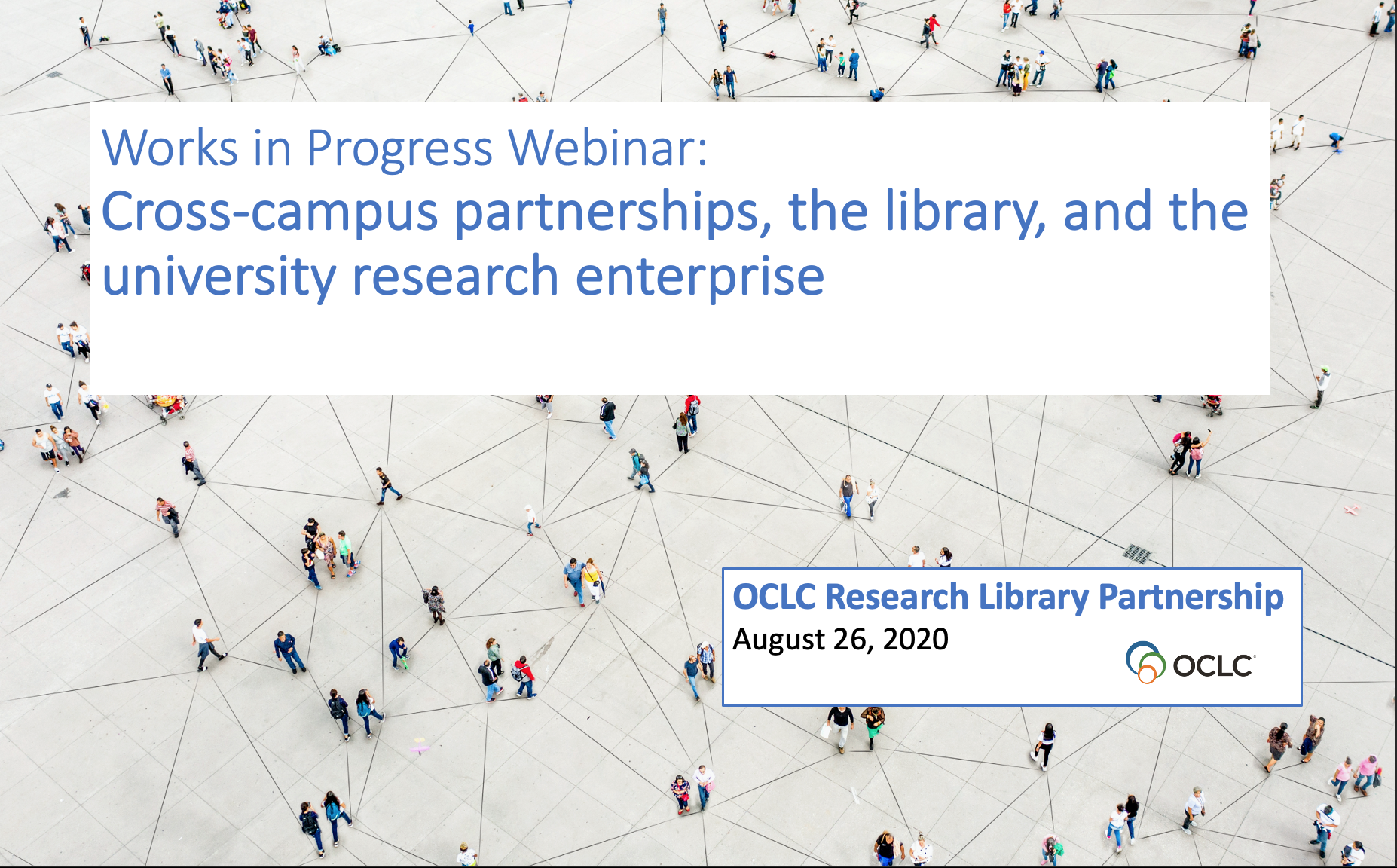
Cross-campus partnerships, the library, and the university research enterprise
This webinar is the first in a series offered by the OCLC Research Library Partnership focusing on cross-campus collaboration in research support.
Topics: Research Information Management, Role of Libraries in Data Curation, Institutional Organization, Research Support, Research Data Management, Works in Progress
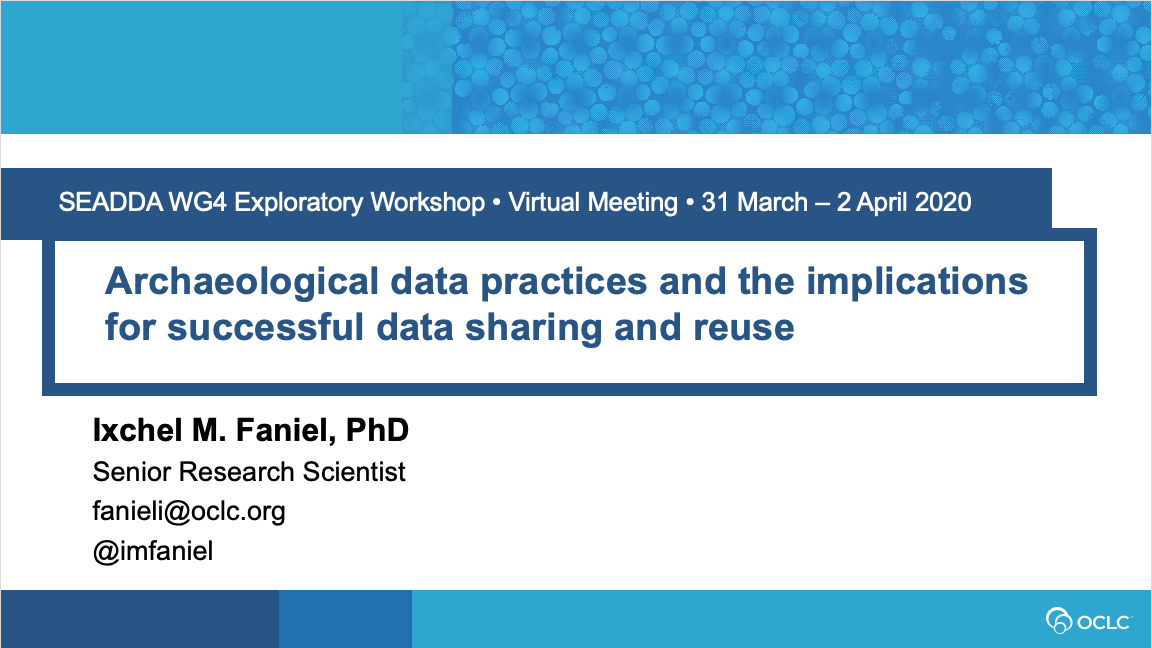
Archaeological data practices and the implications for successful data sharing and reuse
virtual
In this keynote presentation, Ixchel M. Faniel discusses findings from several studies examining archaeological data practices and needs and the implications for successful data sharing and reuse.
Keynote recording available from SEADDA.
Topics: User Research, Research Data Management, SLO-Data
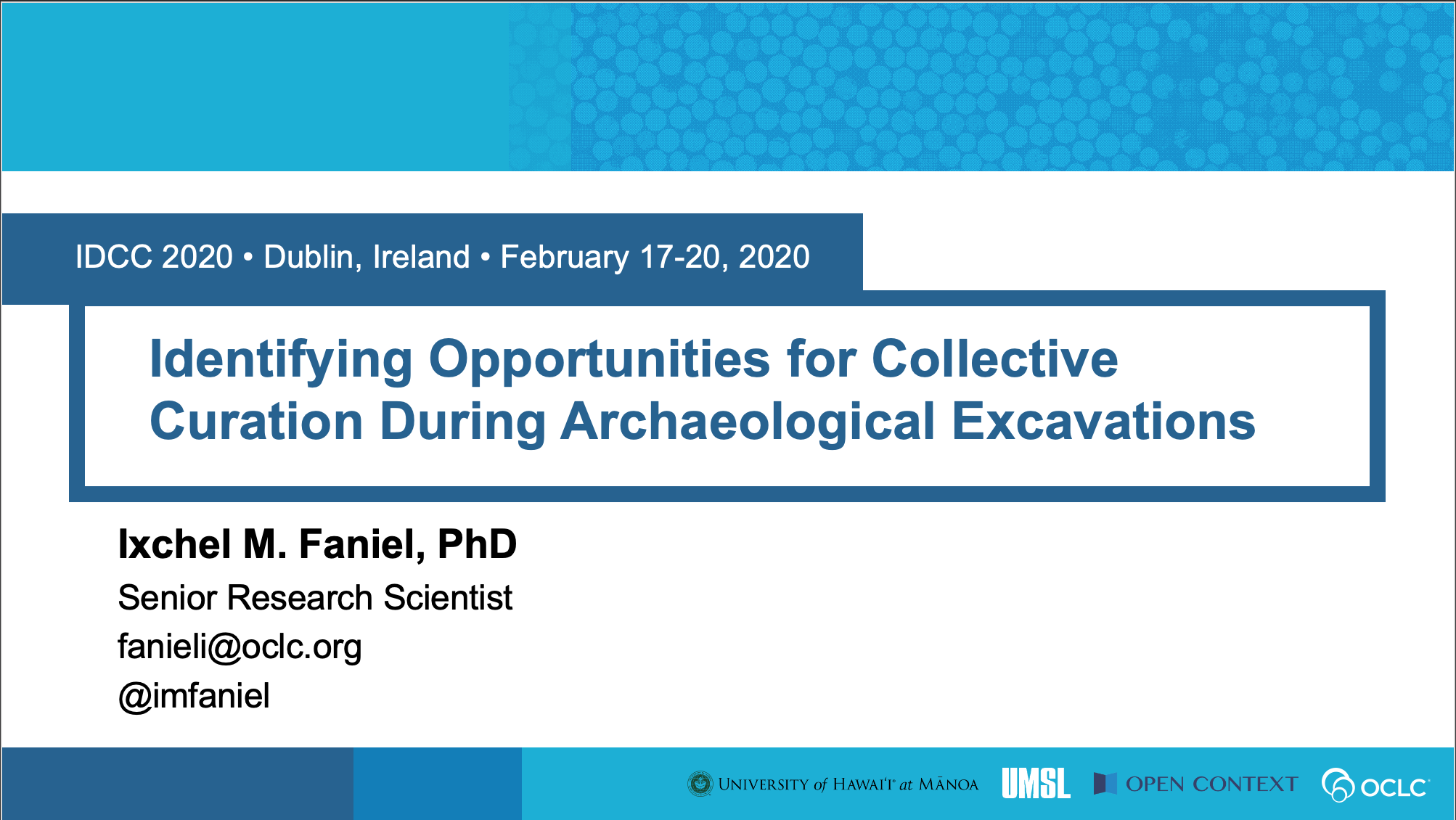
Identifying Opportunities for Collective Curation During Archaeological Excavations
Dublin, Ireland
Archaeological excavations are comprised of interdisciplinary teams that create, manage, and share data as they unearth and analyze material culture. These team-based settings are ripe for collective curation, particularly among the excavation teams responsible for unearthing the materials and the specialists responsible for analysing them. Yet, findings from a study of four excavation sites show specialist data tend to remain unlinked and decontextualized from excavation data. This presentation highlights findings from the study, opportunities identified for collective curation, and responses from the four excavation projects.
Topics: Research Data Management, User Research, SLO-Data
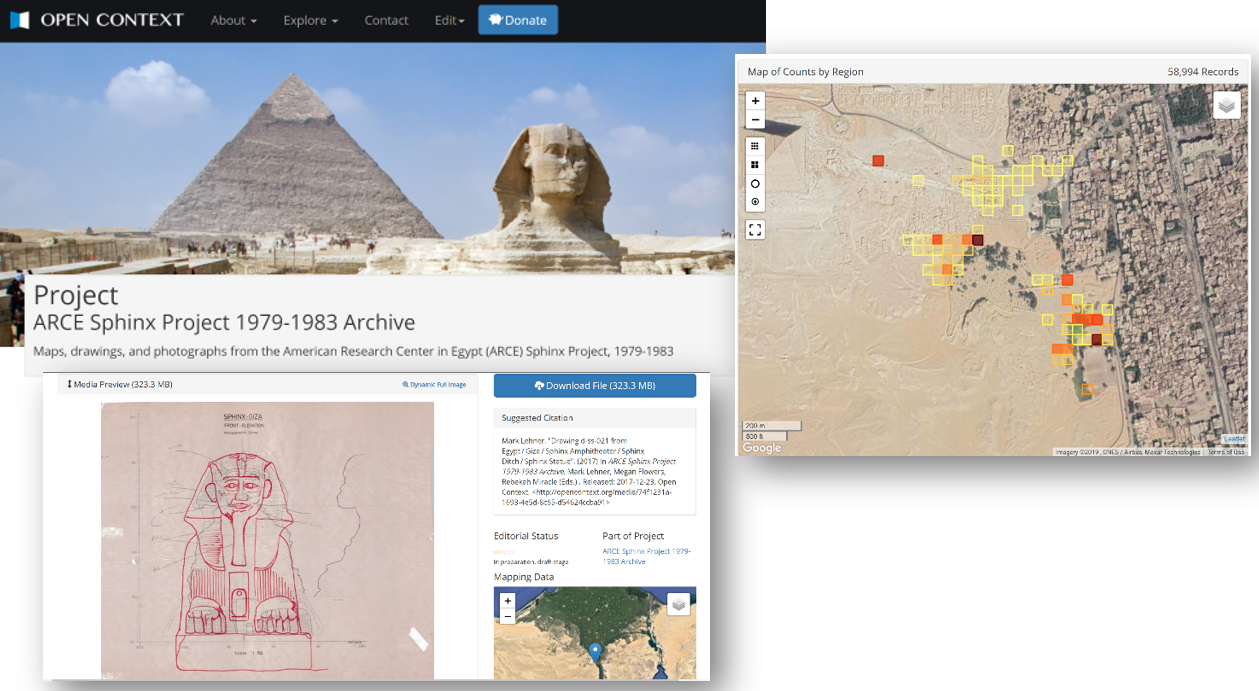
Designing, Timing, and Determining the Feasibility of Curatorial Interventions to Support Data Reuse
Yakel highlights findings from a case study, including data creation and selection practices that negatively influenced other stages of the data lifecycle and the curatorial interventions that mitigated these practices to create a more positive data reuse experience. Kansa discusses implications the findings have on the design, timing, and feasibility of curatorial interventions during a data’s lifecycle.
Topics: Research Data Management, Works in Progress
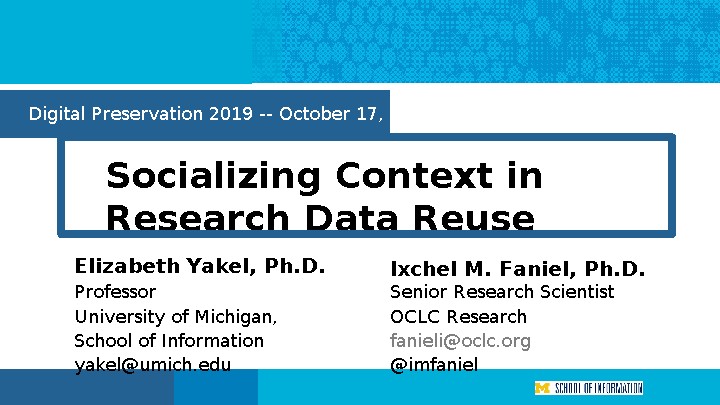
Socializing Context in Research Data Reuse
Tampa, Florida, USA
Presenters focus on data reuse and the data reuser's need for contextual information, the sources of context information, and the reasons why this information is needed.
Topics: Research Data Management
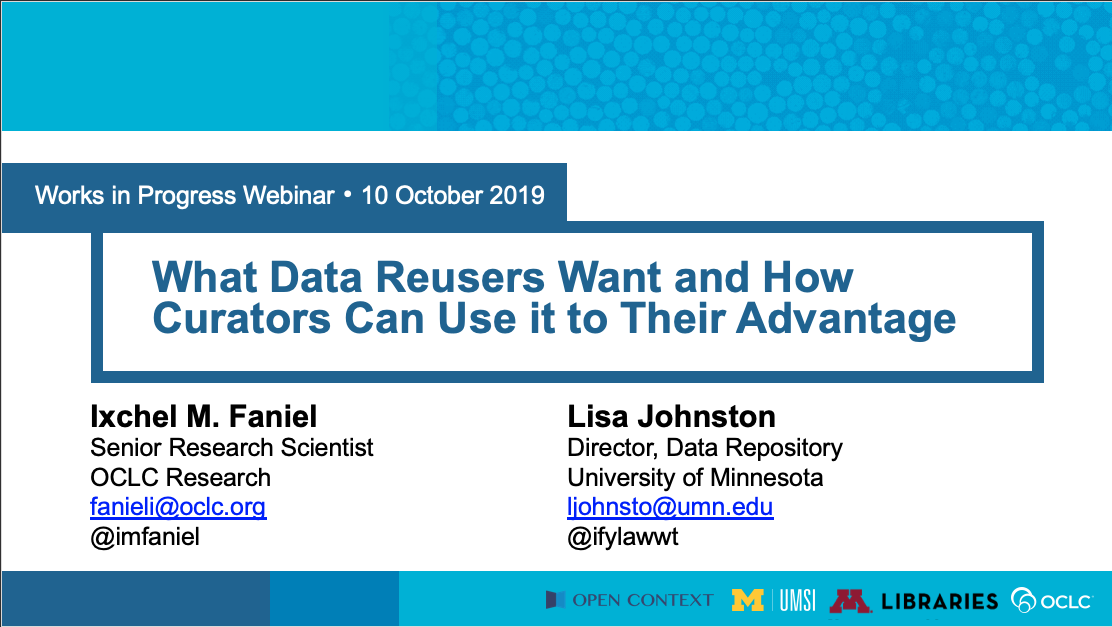
What Data Reusers Want and How Data Curators Can Use It to Their Advantage
This webinar explains the different types of context information needed to preserve data’s meaning in ways that support data reuse over time and to discuss when and how to best capture this information over the course of the data’s lifecycle.
Topics: Research Data Management, Works in Progress

Responding to Researcher Needs Through Continuous Skills Development - A Case Study from the University of Miami
Watch this webinar to learn how one librarian works to actively develop new skills and knowledge needed to support RDM services in a rapidly evolving ecosystem.
Topics: Research Data Management, Works in Progress
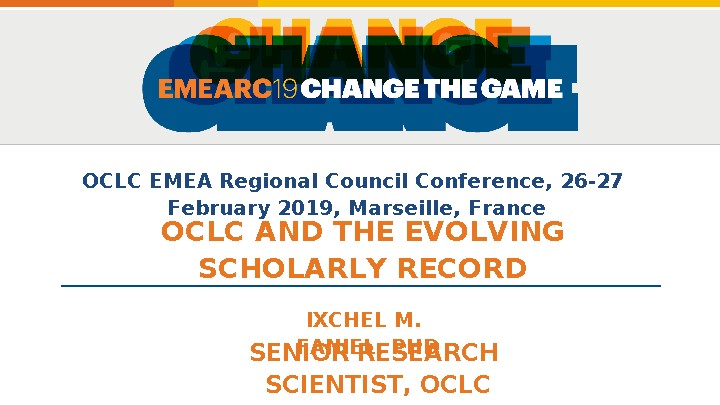
OCLC and the Evolving Scholarly Record
Marseille (France)
Ixchel M. Faniel explores the contours of the evolving scholarly record, including stakeholders, stewardship, conscious coordination, and the "inside out library."
Topics: Evolving Scholarly Record, Research Data Management, Research Information Management, User Research
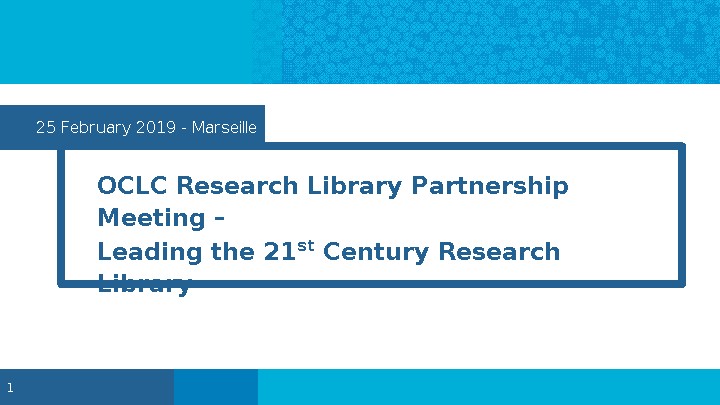
Leading the 21st Century Research Library
Marseille (France)
Program officers and researchers share recent OCLC Research into European practices related to linked data, research data management, persistent identifiers, open access, and research information management.
Topics: Linked Data, Research Data Management, Research Information Management, Open Access